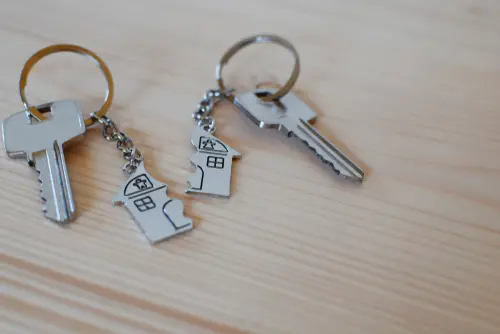
Both parties in a divorce have goals for their split. One may be determined to get the family pet, while another is more concerned about the family car. What happens, though, when both of you want ownership of one particular object – namely, your family home? If coming through your Michigan divorce with the house in your name is a non-negotiable, it’s time to find out how to play ball and get what you want from the dissolution of your marriage.
1. Know What Is Considered Marital Property
Property that you and your spouse acquired during your marriage is owned by both of you and is considered marital property. It doesn’t matter whose name is on the deed of your house – if you bought it while legally wed, it’s up for grabs in the divorce. Don’t let your ex make you think you have no right to the home if only their name is on the documentation. If you lived, loved, and played there together with your family, you have just as much right to it as your spouse.
2. Determine Your Rights to Separate Property
What if you moved into your spouse’s home after marriage and you didn’t purchase a new place together? You still have rights to that property, especially if you contributed to the growth or improvement of that property during your marriage. That could mean anything from paying for a new roof to improving curb appeal, doing renovations to keeping the place clean and inhabitable for your family. Separate property is a gray area though and can come with plenty of arguments, so you want to be sure and have a savvy Michigan divorce attorney who can help get you what you deserve.
3. Understand How Equitable Distribution Works
Michigan is an equitable distribution state, which means that divorcing couples are encouraged to come to their own settlement about how marital property is divided. If they can’t figure it out, a judge will make the call. It’s important to understand that “equitable” does not mean “equal,” but simply “fair.” If you can’t agree on who gets the house in your split, when making a determination a judge will consider the length of the marriage, what you both contributed to the marital property, your individual circumstances and needs, age and health of both parties, earning potential, and the conduct of both spouses.
4. Complete the Paperwork
Your judgment of divorce will state whether you or your ex will keep the family home in your divorce. However, saying it is not enough. It’s your responsibility to finish the paperwork and ensure that deeds and ownership are officially and legally transferred. Divorce papers typically outline just how long a party has to finalize this transfer. If the date has passed and no moves have been made to change ownership of the family home, a motion can be filed to ask the judge to enforce the judgment of divorce.
5. Get a Good Michigan Divorce Lawyer
Just because a divorce decree states orders for both parties to follow doesn’t mean the orders will be followed – advocate for yourself and make sure your Michigan divorce lawyer does too. Contact the family law attorneys at Michigan Divorce Help for ongoing support before, during, and after your split.